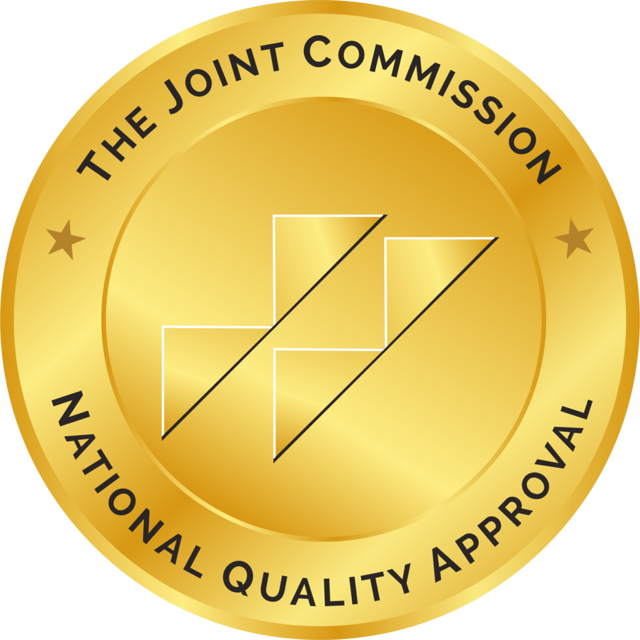
Specialty Care
Infusion treatments, whether at home, in a healthcare clinic or other non-hospital setting, require highly trained Specialty Care nursing and pharmacy support. Trust becomes essential for these higher-risk infusion therapies that require ongoing care.

Clinical Nutrition
Nutrition plays an essential role in sustaining quality of life for those who require care for complex conditions. Pentec Health provides personalized clinical nutrition solutions and superior community-based care.

Disease States
Managing the multifaceted needs for a variety of conditions requiring clinical nutrition and specialty care therapies, services and products. This includes patients with kidney disease, kidney failure, chronic, non-healing wounds, gastrointestinal conditions, rare metabolic disorders, chronic pain, muscle spasticity or cancer within or that has metastasized in the liver.

Continuing Education
By leveraging decades of clinical expertise, we are able to successfully demonstrate our industry leadership through webinars, speaker programs and research studies. We take pride in sharing valuable insights that enhance clinician education and practice.

Patient Resources
We are committed to supporting patients by empowering them with knowledge and resources needed to navigate their healthcare journey with confidence.

Pentec Health
Pentec Health is a national leader in clinical nutrition and specialty care integrating pharmacy services with clinical excellence to enhance the complex care journey.

Rare Disease Spotlight: Phenylketonuria
Phenylketonuria (PKU) is a rare inherited disorder that results in the inability to break down the amino acid phenylalanine, found in all foods containing protein. A buildup of this in a person's blood or urine can cause both intellectual and developmental disabilities if left
untreated.1
PKU is an autosomal recessive metabolic genetic disorder, this means that two PKU versions of a gene are required for an individual to be affected. Therefore, both parents must carry the defective gene. In these cases, there is a 25% chance of a child having PKU and a 50% chance that they will carry the gene but be unaffected.
In those that inherit PKU, high levels of phenylalanine during childhood can cause brain damage that can lead to intellectual disability, seizures, behavioral issues, and mental disorders.
There are 4 classifications of PKU:
● Hyperphenylalaninemia, the lowest level above normal.
● Mild PKU, individuals can tolerate 400-600 mg of phenylalanine per day.
● Moderate or variant PKU, individuals can tolerate 350-400mg of phenylalanine per day.
● Classic PKU, blood levels of phenylalanine are high, caused by a complete or near-complete deficiency of phenylalanine hydroxylase. Individuals tolerate less than 250-350mg of phenylalanine per day.2
All newborns in the U.S. are screened routinely for PKU after birth, allowing effective diagnosis and treatment early in life. Prenatal testing is also available to determine if a fetus is at risk of PKU. Though the occurrence varies based on geography and ethnic group, on average in the U.S. the incidence of PKU is 1 in 25,000 newborns, classifying PKU as a rare disease.3
ZOIA Pharma is a holistic provider for the rare disease community
ZOIA Pharma, a Pentec company, delivers exceptional nutritional products to support people with inherited metabolic disorders and other rare diseases. As the only provider in the U.S. dedicated specifically to the rare disease community, ZOIA Pharma supplies a wide-range of medical foods/formulas, low protein foods and enteral nutrition from leading manufacturers. Exclusive brands include PKU GOLIKE®, the first prolonged-release phenylalanine-free medical food for the dietary management of both children and adults as well as Promin low protein foods with an extensive catalog of more than 100 products ranging from cereal, pasta, meat substitutes and bread to breakfast bars, smoothies and desserts. Since rare diseases demand specialized care and innovative solutions, ZOIA Pharma extends beyond nutritional products to include nutritional management services, helping patients and healthcare providers with clinical support, product distribution and navigating the complexity of insurance coverage.
Symptoms and Diagnosis
Children with untreated PKU will appear healthy at birth however, by 3-6 months they begin to lose interest in their surroundings. By the age of 1 their skin will have less pigmentation, and they will be developmentally delayed. If phenylalanine uptake is not restricted in their diet, they may experience severe intellectual and developmental disabilities.
If detected in newborns, treatment begins immediately to reduce the risk of serious complications and involves a special diet and regular blood testing.
Lack of treatment can lead to the development of more serious symptoms, including:
- Behavioral difficulties
- Seizures, tremors, and jerking movements of the arms and legs
- Stunted or slowed growth
- Eczema
- Decrease of skin, hair and eye pigmentation
- Microcephaly
- A musty odor in breath, skin, and urine
Living with PKU as an adult
Adults living with PKU tend to find that they function best when on a low protein diet, therefore, it is advised they adhere to this type of diet for life. Currently, there is no evidence to show that high phenylalanine levels can cause permanent damage in the brains of adults with PKU.
Some adults with PKU may struggle to maintain a low protein diet and as such have higher phenylalanine levels. This can result in unstable moods, reduced concentration or slower reaction times however this can usually be reversed by following a low protein diet.4
For women living with PKU, it is important to maintain a strict low protein diet if considering becoming pregnant - as high phenylalanine levels can harm unborn babies.
Treatment for PKU
There is no cure for PKU, however, careful treatment can prevent developmental issues in children. Experts advise limiting phenylalanine intake as soon after birth as possible and continuing this for life. Foods for people with PKU to avoid include dairy products, eggs, nuts, legumes, chicken, beef, pork, fish, and beer. It is also critically important for people with PKU to avoid the sweetener aspartame as this releases phenylalanine when digested. Aspartame is found in some foods, drinks, medications, and vitamins but especially in zero or low sugar drinks.
Some PKU patients will require limiting their intake of lower protein foods such as certain fruits and vegetables. It is important to maintain frequent blood tests and doctor visits to monitor the efficacy of treatment and ensure patients are receiving the best-tailored treatment.
How can ZOIA Pharma, a Pentec Company, help?
Serving as the exclusive U.S. distributor of PKU GOLIKE and Promin low protein foods as well as other vital nutritional products, we are able to directly support the rare disease community in a way no other national provider can. Many of the over 10,000 active PKU patients, and their families struggle to find reliable suppliers for metabolic formula and low protein food. We play a valuable role in ensuring ease of access to a variety of nutritional products.
Additionally, we operate an 11,000 square- foot U.S. Food and Drug Administration-registered medical food warehouse and storage facility, this enables us to serve more patients across the nation, offer more product selection and give providers peace of mind during supply shortages.
Our dedication to the PKU community goes beyond providing formula and low protein food. We have patients and providers covered by investigating insurance benefits and potential reimbursement, identifying affordable options, providing home delivery and more.
We are an extension of families’ care teams. Our ability to support expanded coverage across Medicaid and other private insurance plans increases availability, which is vital for patient access and adherence.
PKU patients deserve a reliable provider to meet their nutritional needs. At ZOIA Pharma, a Pentec Company, our trusted services empower patients and their families on the journey towards better health and well-being.
References:
1. “Phenylketonuria (PKU).” Eunice Kennedy Shriver National Institute of Child Health and Human Development, U.S. Department of Health and Human Services, 16 Jan. 2024, https://www.nichd.nih.gov/health/topics/pku.
2. Regier, DS, Greene, CL. “Phenylalanine Hydroxylase Deficiency.” In GeneReviews® [Internet], edited by Adam, MP, Feldman, J, Mirzaa GM, et al. Seattle (WA): University of Washington, Seattle; 1993-2024. http://www.ncbi.nlm.nih.gov/books/NBK1504/.
3. “Phenylketonuria: Medlineplus Genetics.” MedlinePlus, U.S. National Library of Medicine, https://medlineplus.gov/genetics/condition/phenylketonuria/. Accessed 23 July 2024.
4. “If Phenylketonuria (PKU) Is Not Treated, What Problems Occur?” Eunice Kennedy Shriver National Institute of Child Health and Human Development, U.S. Department of Health and Human Services, 16 Jan. 2024, https://www.nichd.nih.gov/health/topics/pku/conditioninfo/untreated#f3.

Proudly Quality Accredited
National Quality Approval
The Joint Commission

Accredited Practice Transition
Program With Distinction
American Nurses Credentialing Center

NHIA Provider Member
National Home Infusion Association Center
By using this website you accept our privacy policy. Choose the browser data you consent to allow:
